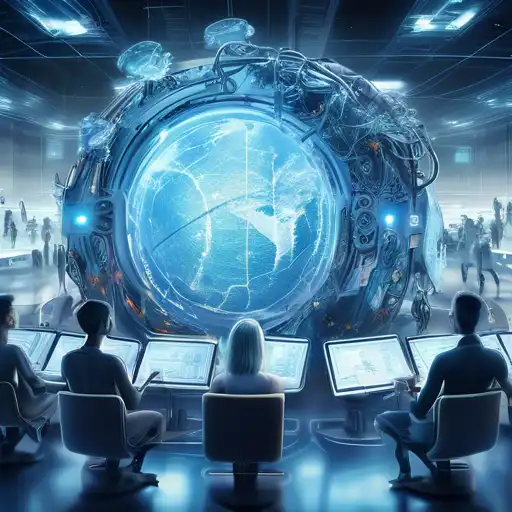The Revolutionary Impact of Machine Learning on Global Industries
Machine learning, a subset of artificial intelligence, is transforming the way we live, work, and interact with the world around us. From healthcare to finance, and from education to entertainment, machine learning is making significant strides in automating processes, enhancing decision-making, and creating new opportunities for innovation.
Understanding Machine Learning
At its core, machine learning involves the use of algorithms and statistical models to enable computers to perform tasks without explicit instructions. Instead, these systems learn from and make predictions based on data. This ability to learn from experience is what sets machine learning apart from traditional programming.
Applications of Machine Learning
The applications of machine learning are vast and varied. Here are just a few examples of how this technology is being used today:
- Healthcare: Machine learning algorithms are being used to predict patient outcomes, personalize treatment plans, and even assist in surgical procedures.
- Finance: In the financial sector, machine learning is used for fraud detection, risk management, and algorithmic trading.
- Retail: Retailers are leveraging machine learning for inventory management, personalized shopping experiences, and customer service automation.
- Transportation: From optimizing routes for delivery trucks to powering self-driving cars, machine learning is at the heart of modern transportation solutions.
The Future of Machine Learning
As machine learning technology continues to evolve, its potential to revolutionize industries and improve our daily lives is limitless. With advancements in deep learning and neural networks, we can expect even more sophisticated applications in the near future.
One of the most exciting prospects is the integration of machine learning with other emerging technologies, such as the Internet of Things (IoT) and blockchain, to create smarter, more secure systems.
Challenges and Considerations
Despite its many benefits, the widespread adoption of machine learning also presents challenges. Issues such as data privacy, ethical considerations, and the need for skilled professionals must be addressed to fully realize the potential of this technology.
Moreover, as machine learning systems become more complex, ensuring their transparency and accountability will be crucial in building trust among users and stakeholders.
Conclusion
Machine learning is undeniably changing the world, offering unprecedented opportunities for innovation and efficiency across various sectors. By understanding its applications, challenges, and future prospects, we can better prepare for a future where machine learning plays a central role in shaping our society.
For those interested in exploring more about how technology is transforming industries, check out our article on The Rise of Artificial Intelligence.
